Japan Takes the Lead on Ammonia as Maritime Fuel
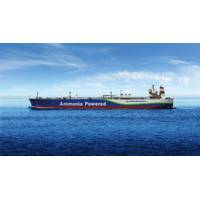
Late last year Japanese maritime leaders – Nippon Yusen Kabushiki Kaisha (NYK), Japan Engine Corporation, IHI Power Systems Co., and Nihon Shipyard Co., Ltd. – signed a series of contracts to buid the world's first ammonia-fueled medium gas carrier (AFMGC) equipped with Japan-make engines. The target is a completed ship by November 2026.While the project is significant, hurdles remain, namely:While development work is underway, today there is not yet a dual-fuel ammonia engine on the market…
Rotor Sails: The Compelling Decarbonization Solution
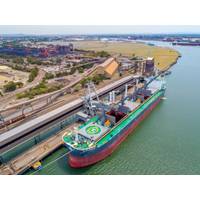
Global supplier of wind propulsion, Anemoi Marine, believes Rotor Sails - which are unique, tall cylindrical sails that can be installed on the deck of commercial vessels - offer an immediate and compelling solution for shipowners working to reduce vessel emissions.Anemoi estimates that a VLCC with six Rotor Sails would reduce fuel and emissions by approximately 14.9% (c.1,889 tonnes fuel and c.6,058 tonnes of carbon) per year, based on a Bonny-Ningbo round trip.When considering fuel savings for bulk carriers…
HMP Buys Two 'Eco-friendly' VLCCs
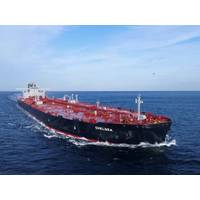
The Arab Petroleum Investments Corporation (APICORP), an energy-focused multilateral development financial institution, and the National Bank of Fujairah (NBF) signed a five-year $108 million debt finance facility with Hartree Maritime Partners, LLC (HMP), the shipping affiliate of Hartree Partners, a global energy and commodities firm, with the aim to help boost maritime sustainability.The facility, in which APICORP acted as the Mandated Arranger and Facility Agent…
DNV Report Says Maritime Energy Transition is Gaining Speed
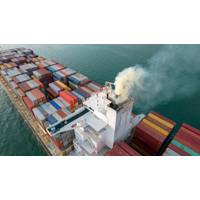
More than 1000 ships are expected to be ordered per year through 2030, and with growing pressure on the shipping industry to decarbonize, the shipowners must be careful with fuel selection and ship design, as a misstep here can have damaging consequences in the future.This is according to the latest Maritime Forecast to 2050 launched Tuesday by DNV.DNV stressed that shipping decarbonization was no longer just a top priority for the International Maritime Organization (IMO)…
Sakura Leader: New LNG-fueled Pure Car Carrier Enters Service
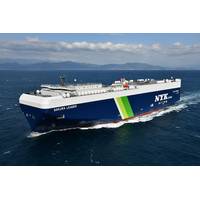
Mitsubishi Shipbuilding Co., Ltd. completed installation of the first unit of an LNG (liquefied natural gas) fuel gas supply system (FGSS) for marine dual fuel engines, delivered in November last year, on the pure car carrier (PCC) built by Shin Kurushima Toyohashi Shipbuilding Co., Ltd. The first LNG-fueled PCC built in Japan was delivered to Nippon Yusen Kabushiki Kaisha on October 28, 2020, and has entered service. During the construction period after the delivery of the FGSS…
Japan Trio Begins Work on an Ammonia-Fueled Tugboat
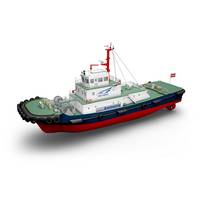
As the marine industry works to find the ‘fuel of the future’ to address increasingly stringent emission regulations, an interesting development from a trio of marine powers in Japan seeks to develop the world’s first ammonia-fueled tugboat. The joint research and development agreement was signed by NYK, IHI Power Systems Co., Ltd., and ClassNK recently to put the world's first ammonia-fueled tugboat into practical use.With the entry into force of the Paris Agreement in 2016…
Ship Power: WinGD Debuts X-DF2.0 Technology
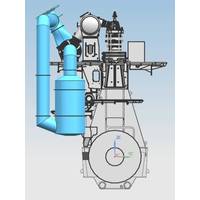
As shipowners mull ‘the fuel of the future’ and eye ever-stricter emission mandates from the International Maritime Organization, companies throughout the ship design, construction and supply chain continue to innovate to deliver optimum fuel efficiency and emission reduction.Today WinGD unveiled a new technology development to its dual fuel line of engines, a technology designed to significantly cut methane slip, emissions and fuel consumption in its X-DF dual-fuel engines via Intelligent Control by Exhaust Recycling (iCER)…
BIMCO: 2020 and the Collapse of Bunker Fuel Markets
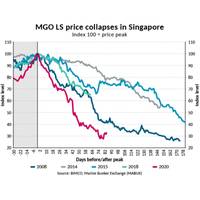
The sulfur regulation from the International Maritime Organization (IMO) that came into force on 1 January 2020 took the center stage in the shipping industry at outset of the new decade. Four months on, the spotlights have turned to the coronavirus and the OPEC+ oil price war.The outlook for global economic growth remains bleak as the world is faced with the largest recession since the Great Depression in the 1930s.Commodity prices have declined across the board and most recently…
LNG and Shipping Decarbonisation Target
Though liquefied natural gas (LNG) could help the shipping industry to reach its decarbonization target, it could wreck the climate, finds a study.According to a research by the International Council on Clean Transportation (ICCT), switching vessels to the LNG fuel would only serve to worsen shipping’s climate impact due to previously underestimated leakage of the climate super-pollutant methane.More and more ships, including container ships and cruise ships…
Venezuela Alters Oil Royalty Formulas, Driven by IMO 2020
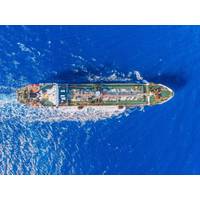
Venezuela has changed the formulas for calculating royalties energy companies pay the government to remove references to fuel oil and some crude grades, driven by stricter rules governing marine fuel emissions, according to a document seen by Reuters.A ban by the United Nations shipping agency, the International Maritime Organization (IMO), on the use of fuels with a sulfur content above 0.5%, aimed at reducing pollution, has roiled…
Malaysia Spot Crude Premiums Hit Multi-year High
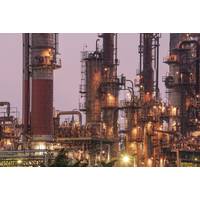
Asia-Pacific refineries are forking out multi-year high premiums for sweet crude produced in the region as alternative supplies from the West have become more expensive with the rise in shipping costs, several trade sources said on Monday.Lower exports from Indonesia and Vietnam and rising demand for very low-sulphur fuel oil (VLSFO) have also helped push up premiums for crude produced in Malaysia such as Labuan and Kimanis to the highest in years…
Asian Refiners Strive to Finish IMO Preparations
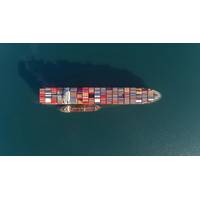
At SK Energy's largest refinery in South Korea, engineers are rushing to complete a new processing unit ahead of schedule as the firm looks to boost sales of low-emission fuels before new marine fuel standards take effect in just one month.In Japan, the country's second-biggest refiner Idemitsu Kosan Co is taking a more cautious stance, increasing capacity for low sulphur fuel oil (LSFO), but also relying on blending to produce IMO 2020…
German Shipping to Use LSFO
The vast majority of ships in the German fleet will run on the new sulfur-reduced fuel (Low Sulfur Fuel Oil, LSFO) from 1 January at the latest. This is one of the findings of a survey conducted by the German Shipowners’ Association (Verband Deutscher Reeder, VDR) among its member companies.While the body of data obtained through the survey is not representative of the German shipping industry as a whole, it does reflect views that can…
Germany Mulls Onshore Power in Seaports
German federal government took a step to make onshore power in seaports more attractive; this week the environment ministers of the federal and state governments will be meeting in Hamburg to discuss onshore power initiatives in Germany.Against this backdrop, the German Shipowners’ Association (Verband Deutscher Reeder, VDR) welcomes plans to provide ships with onshore power while on berth in German ports.“We are united in our goal to further improve the climate and the air quality in the ports…
Norway Supports GreenVoyage-2050 Project
Partnerships and innovations are essential to combat climate change through reductions in GHG emissions. Norway has provided an additional NOK 40,000,000 (US$4.3. million) to the International Maritime Organization (IMO)-Norway GreenVoyage-2050 project, which will support GHG reductions in line with the IMO initial strategy for reducing greenhouse gas emissions from shipping.This supports UN SDG 13 on climate action. The project aims to assist countries to implement legal…
Hellenic Q3 Core Profit Falls 15%
Hellenic Petroleum's core profit fell 15% in the third quarter on lower refining margins, Greece's biggest oil refiner said on Tuesday.Adjusted for oil inventory holdings, earnings before interest, tax, depreciation and amortisation (EBITDA) came in at 201 million euros ($222.91 million), down from 237 million euros in the same period last year.The figure was at the high end of analysts' forecasts from a Reuters poll.Hellenic, which exports more than half of its output…
IRENA: Shipping Industry Must Cut Emissions
The International Renewable Energy Agency (IRENA) highlighted the importance of reducing shipping emissions and following the path towards a carbon-zero industry, in line with International Maritime Organization (IMO)’s sustainability targets.IRENA said that immediate action is required if the global shipping industry is to meet a target of halving its carbon emissions by the middle of the century.With heavy fuel oil covering 82 per cent of the sector’s energy needs…
QP Begins VLSFO Bunkering at Ras Laffan Port
State-owned oil company Qatar Petroleum announced the commencement of Very Low Sulfur Fuel Oil (VLSFO) bunker supply operations at Ras Laffan Industrial City (RLIC) Port.The VLSFO marine fuel offering has been initiated in advance of the International Maritime Organization (IMO) 2020 regulation for a 0.50% global Sulfur limit for marine fuels which will come into effect 1st January 2020.Qatar Petroleum, in conjunction with Qatar Fuel (Woqod)…
Valero Energy Profit Beats Estimates
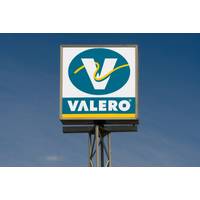
Independent U.S. refiner Valero Energy Corp reported better-than-expected quarterly profit on Thursday, benefiting from easy access to cheap light crude from the country's prolific shale oil basins.U.S. refiners have been revamping their processing units to make them compliant with the International Maritime Organization's (IMO) regulatory standards, which will enforce low-sulfur fuel regulations by next year.IMP 2020 is a standard for maritime fuel that takes effect on Jan.
Heavy Crude Demand Boosts Mitsui Profits
Higher demand in low-sulphur heavy crude ahead of new rules on shipping fuel is helping to boost the profit of Mitsui & Co as the Greater Enfield project in Australia began production in August as scheduled, the Japanese trading house's CEO said on Thursday."The timely start of production of fine-quality low-sulphur heavy crude at the upstream project had also a ripple effect to our energy trading unit in Singapore," Mitsui Chief Executive…
